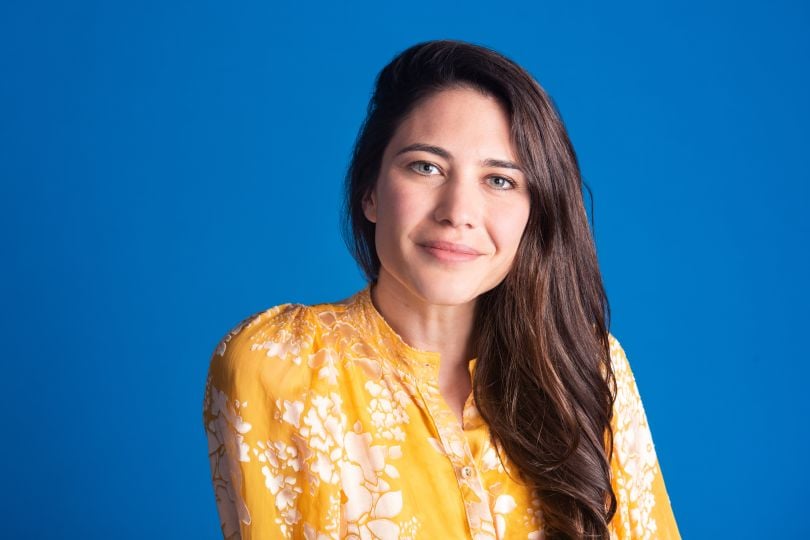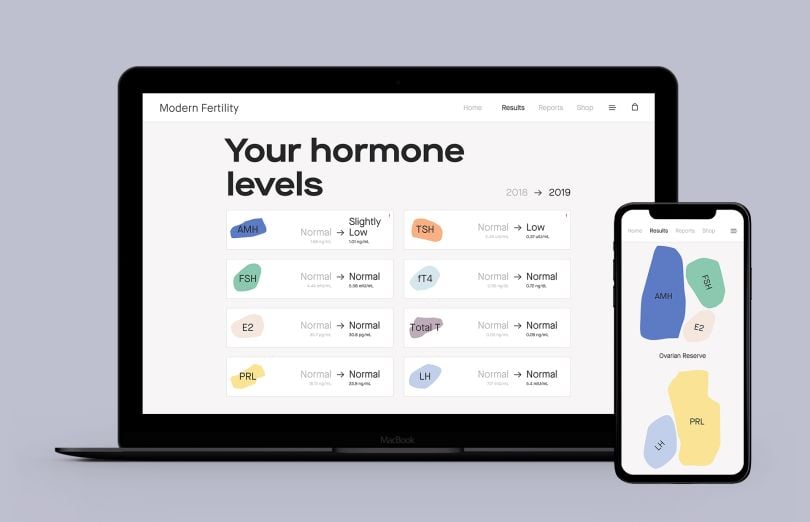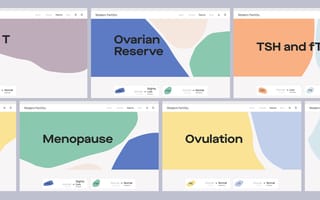Women in San Francisco have their first child at a later age than women anywhere else in the country, according to a 2018 analysis from the New York Times. Married women in SF with a college degree have their first child at age 32.9 on average, compared to the national average of 26.
Level of education is associated with how long couples wait to start a family, but work also plays a role. In the Bay Area’s competitive tech market, women, and men too, are devoting more time to their careers before trying to have kids. Still, chances of conceiving decrease with age, and the number of couples experiencing fertility issues is growing. In 2017, U.S. birth rates declined for women in almost every age group under 40, according to health officials — a record low.
Bay Area tech giants like Google, Apple and Facebook offer to pay for employees to freeze their eggs so they can conceive later as one solution to the problem. This move has been criticized as a way to keep employees working for longer without families at home to distract them, but many have found it to be a helpful family planning tool.
For those who don’t work for one of the big firms, the cost of egg freezing and other fertility treatment options can be prohibitively expensive to pay for out-of-pocket. Women spend $15,000 to $20,000 per cycle of egg freezing on average, according to fertility database FertilityIQ, and many opt for two cycles. Smaller companies and startups often can’t afford to pay for healthcare perks like this.
But a spate of fertility tech companies have emerged in San Francisco in recent years, offering fertility options designed to be affordable and accessible to more couples trying to have kids. Their services range from at-home fertility tests, to on-demand virtual care from an expert nurse, to payment plans that make in vitro fertilization (IVF) and egg freezing more cost-effective.
Modern Fertility
- Founded: 2017
- Headquarters: San Francisco, CA
- Funding: $22M
- Industry: Healthcare technology

A Personal Fertility Detective
Modern Fertility, based in San Francisco, offers a test that measures the same hormones as a fertility test at the doctor’s office, but that can be done at home or at a Quest Diagnostics lab for $159. Afton Vechery co-founded the company in 2017 after requesting a fertility test from her doctor, being sent to a fertility specialist instead, and eventually paying more than $1,500 for the privilege. There had to be an easier, more affordable way to do this, she thought.
Today, Modern Fertility aims to give women key insights into their fertility health, whether they’re trying to conceive now or have plans to try sometime in the future.
“We know that fertility declines with age,” Vechery said. “By understanding it through our tests, you can continue to track your fertility and how it’s changing.”
After completing an online quiz, the user receives a customized test in the mail based on the type of birth control they use. They take a blood sample at home or at a Quest location and mail it back to Modern Fertility. The test is analyzed by multiple doctors who sit on the company’s medical advisory board and who incorporate information from recent academic papers and medical literature to understand the results. Then, a personalized fertility report is created explaining what a woman’s hormones mean for things like ovarian reserve (egg count), egg freezing, IVF and menopause.
“The Modern Fertility experience is kind of like you’re talking to a doctor,” Vechery said. “But instead, you’re talking to every piece of literature that’s ever been published on the topic of fertility.”

Making Fertility Care Affordable
Future Family
- Founded: 2016
- Headquarters: San Francisco, CA
- Funding: $114.2M
- Industry: Healthcare technology
Future Family, also based in San Francisco, offers loans for fertility options like IVF and egg freezing that users pay for in monthly installments. Their egg freezing plans range from $150 to $175 per month and IVF plans range from $250 to $450 per month. Plans can include fertility coaching and discounts on medication, as well as fertility hormone tests for both women and men.
Before Future Family, co-founder and CEO Claire Tomkins worked in solar energy. In her early thirties, she and her partner had difficulty conceiving. They were able to have three children through IVF, but after the experience, Tomkins wondered why technology had not yet improved such a difficult and expensive industry.
“So much of healthcare is untouched by tech,” Tomkins said. “Fertility stood out to me because you have this very expensive, deeply emotional thing that tech had not reached.”
Tomkins wants to change that with Future Family. In addition to receiving financing for fertility treatment, users can take hormone tests at a Quest lab and get personalized reports, similar to Modern Fertility. All members have access to a fertility coach who provides support via video chat to better inform users and help them make good decisions around their fertility health.
“Our whole mission is to help people build the family that they want,” Tomkins said. “I think one of the most exciting things is that we can now help people have a family who couldn’t before.”
What if Your Insurance Covered Fertility Treatment?
A few startups are making fertility treatment more affordable by going through employer benefits. Carrot Fertility and Stork Club are two B2B startups that partner with companies to provide fertility benefits packages to employees. They help cover the cost of IVF, egg freezing and hormone testing, as well as surrogacy and adoption.
Similar to Vechery and Tomkins, Carrot co-founder and CEO Tammy Sun was inspired to start her company after a personal fertility experience. In her mid-thirties, Sun ended up paying $35,000 out-of-pocket for egg freezing. She realized that women were being unfairly financially burdened by the cost of fertility care.
Sun said she aims to make the whole fertility ecosystem more accessible to everyone. She believes that fertility is not just a women’s issue, it’s a human issue, meaning fertility options should be offered to anyone who wants to have a family.

Making Fertility Accessible & Inclusive
Traditionally, infertility is defined as a man and woman who’ve been trying to conceive for at least one year. But today, what’s known as “social infertility” is also increasing, which is the inability to conceive for reasons other than medically diagnosed infertility. This applies to many LGBTQ couples and people who want to have kids without a partner.
Carrot Fertility is expanding fertility coverage to people with social infertility, in addition to couples who’ve received an official “infertility” diagnosis. In the past, an official diagnosis was a prerequisite for insurance coverage.
Future Family provides egg-freezing and IVF financing options to women in same-sex relationships and trans men. They’re also currently building out services to assist with sperm donation and preparation for reciprocal IVF, which is when one female partner provides eggs for fertilization with donor sperm, while the other female partner carries the pregnancy and gives birth.
Modern Fertility wants to help more members of the LGBTQ community understand their fertility too, as it often takes more planning and preparation to conceive, compared to opposite-sex couples.
Vechery also has some customers who don’t want kids at all. “Some women just want to know about their reproductive health because of how it connects to other [health] factors,” she said. For example, Modern Fertility tests thyroxine, the hormone that regulates many parts of the body including bones, metabolism, and nervous system, as well as menstrual cycle.
“We also see a lot of customers who are still very much undecided about kids taking the test to know their options,” Vechery said. “They want it to be their decision and not decided for them.”
And while fertility care is far from “fixed,” founders in the space are excited about its progress — the ability to help more couples in San Francisco, and throughout the country, create families.
“Tech can’t solve everything but at least there are more options,” Tomkins said. “It’s really about education and awareness.”




